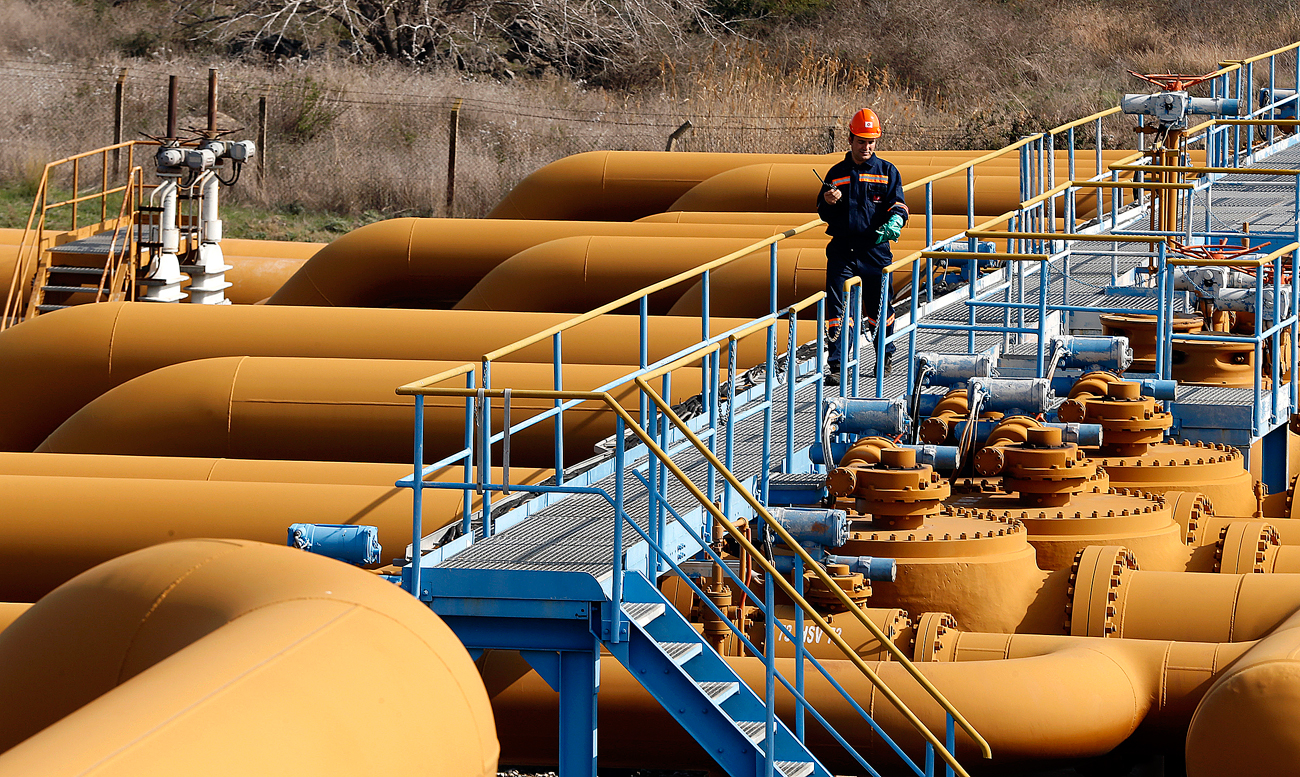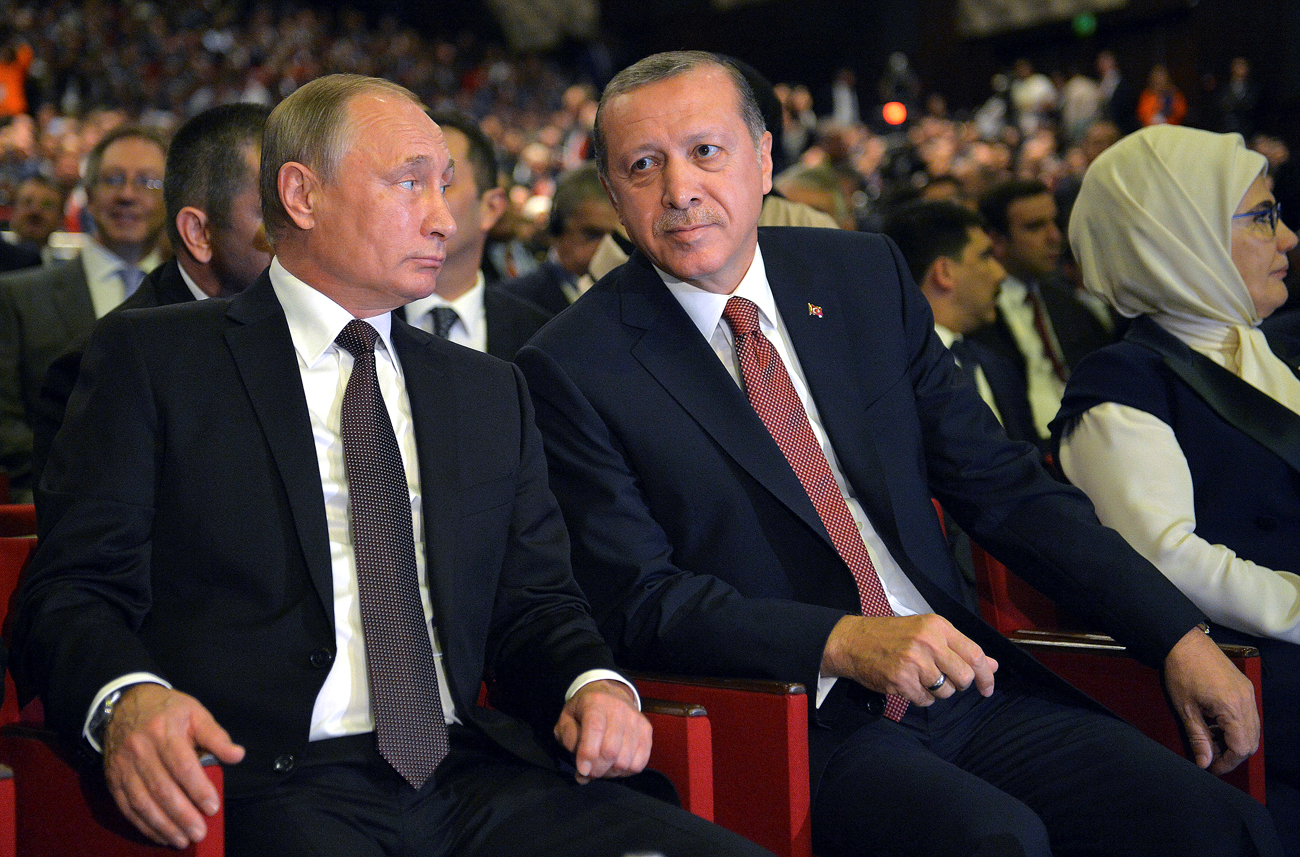Finally, a green light for Russia’s Turkish Stream gas pipeline

A worker performs checks at Turkey's Mediterranean port of Ceyhan, which is run by state-owned Petroleum Pipeline Corporation (BOTAS), some 70 km (43.5 miles) from Adana.
ReutersTurkey’s petroleum pipeline corporation Botas has agreed to collaborate with Russia's Gazprom on building the Turkish Stream gas pipeline under the Black Sea from Russia to Turkey in exchange for a discount on gas.
The corresponding agreement was signed on Oct. 10 by the energy ministers of Russia and Turkey, Alexander Novak and Berat Albayrak, the Kommersant business newspaper reported (in Russian).
According to the document, the pipeline's capacity has been reduced by half to two strings, totaling 32 billion cubic meters of gas. At the same time, the size of discounts for Turkish buyers have remained outside the agreement.
Initially, the Russian authorities were planning to build the South Stream gas pipeline under the Black Sea from Russia to Central Europe via Bulgaria. However, the project encountered resistance from the European Commission. According to the Third Energy Package, the same party may not be both a gas supplier and a network owner in the European Union.
As a result, in December 2014, Russian President Vladimir Putin announced the redirection of the gas pipeline toward Turkey and the launch of Turkish Stream. However, the project was shelved in late 2015 after the Turkish air force shot down a Russian military aircraft along the Syrian border.
The essence of the agreement
As follows from the new agreement, one string of the gas pipeline is intended to supply gas to the Turkish market and the other to the European market, explained Yury Borovsky, an associate professor at the Moscow State Institute of International Relations.
According to Borovsky, this is a certain intermediate, consensus option that can suit everyone: "For Russia, this project is beneficial and important because it allows to increase gas supplies not only to Turkey but also to the European Union," he said.
Gazprom plans to use the first string for transferring gas supplies, which currently come to Turkey from Bulgaria via the Trans-Balkan pipeline. This pipeline runs through Ukraine to Bulgaria, Romania and the Balkans.
If the new project is implemented in full, it will effectively lead to a large-scale replacement of Ukrainian transit, said Ivan Kapitonov, an associate professor at the Russian Presidential Academy of National Economy and Public Administration. In this case, the Ukrainian gas transportation system will lose 14 to 15 billion cubic meters of gas per year, which is currently transported via Ukraine to Turkey.
"For now, the parties will focus on the first phase – the construction of one string with a capacity of 16 billion cubic meters," said Georgy Vashchenko, head of Russian stock market operations at Moscow investment company Freedom Finance. According to Vashchenko, the second part of the project is in question, and it is necessary to conclude a separate agreement for its implementation.
The project's potential
"The Turkish Stream project itself can be divided into two completely different projects," said Sergei Khestanov, macroeconomic adviser to the head of the Otkrytie Brokerage. "The first aims to meet gas demand in the western part of Turkey, which now receives gas from Ukraine through a complicated route."
According to him, the remaining strings will be focused on further supplies of Russian natural gas to Western Europe. However, Turkey is not interested in the development of this part of the project. If one string is eventually built, the project will be beneficial to Turkey, Khestanov said.
According to Kapitonov, upon implementation of the project, “Russia will strengthen the diversification of its gas transit routes and increase its energy security,” though he added that the question of cost recovery remains open.
Much more promising is the project to expand the Nord Stream gas pipeline under the Baltic Sea to Germany, he said. The project is expected to build a gas pipeline with a capacity of 55 billion cubic meters per year. However, the project has not yet received support from the European Commission.
Read more: Turkish Stream will not rival Nord Stream 2 - Austrian energy company>>>
Subscribe to get the hand picked best stories every week
All rights reserved by Rossiyskaya Gazeta.
Subscribe
to our newsletter!
Get the week's best stories straight to your inbox

